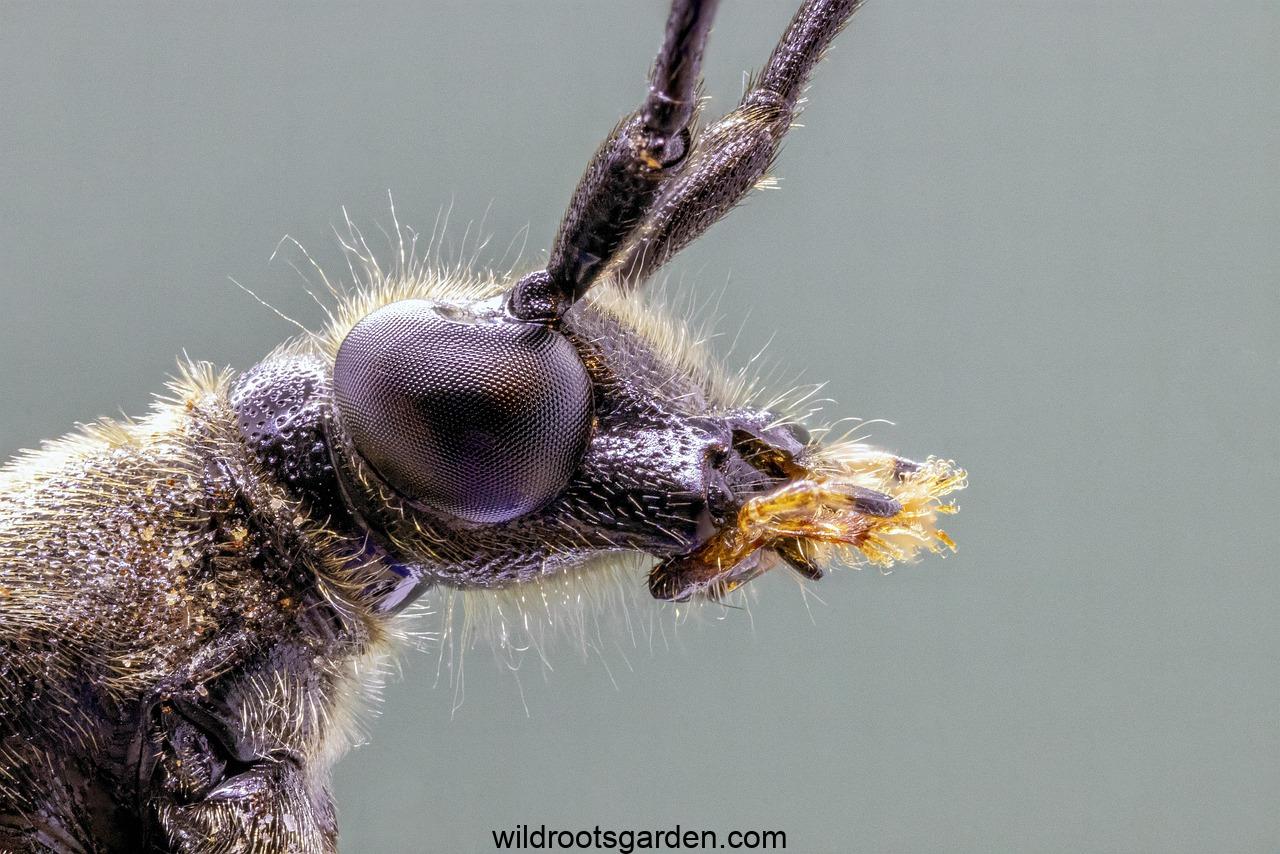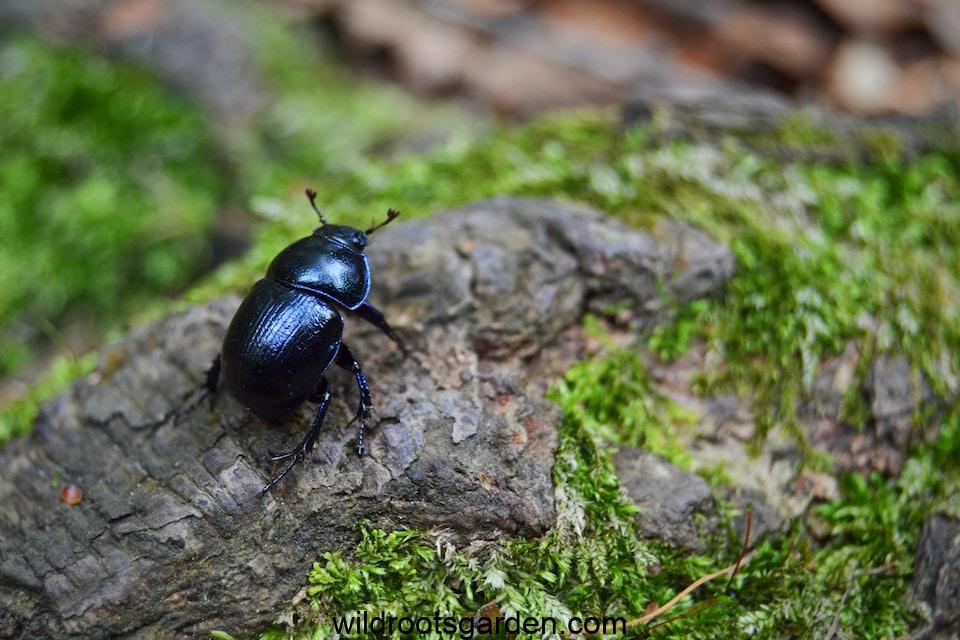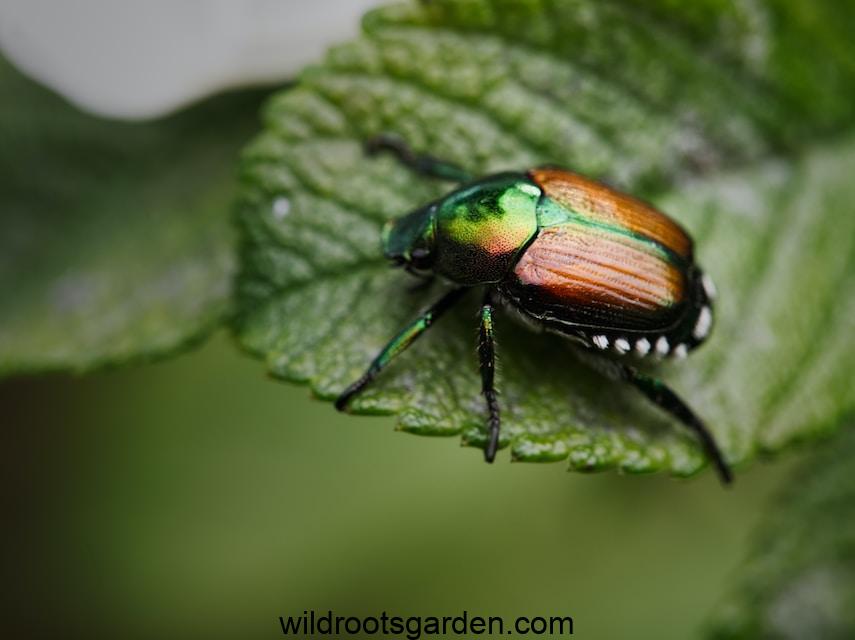Corn flea beetles, tiny jumping insects that feed on corn and other crops, are a nuisance for farmers and gardeners alike. But what about their impact on humans? Are these pests dangerous to our health?
Are Corn Flea Beetles Harmful to Humans? The short answer is no, corn flea beetles are not harmful to humans. They do not bite or sting, and they do not transmit any diseases that can infect humans. So, you can rest assured that encountering these beetles in your garden or fields poses no immediate threat to your health.
However, there are a few indirect ways in which corn flea beetles can be a nuisance to humans:
The 1/16-inch long corn flea beetles have a black body with yellow or orange markings. They can be a major pest to maize fields because they are most active in the spring and summer.
There are a few things you can do to manage corn flea beetles if you are worried about them. Insecticidal soap or neem oil can be used to kill corn flea beetles, or you can grow corn varieties that are resistant to them.
Moreover, you might try luring helpful insects like ladybugs and lacewings into your garden. These bugs will aid in reducing the number of maize flea beetles.

Being a major component of agriculture and food production, corn is a staple crop grown around the world. The corn flea beetle is one of many pests that can harm maize plants. It is crucial to comprehend the danger that these beetles may pose to people to protect both human health and agricultural health.
Are Corn Flea Beetles Harmful to Humans?
1. Damage to Food Crops:
Corn flea beetles can cause significant damage to corn, beans, potatoes, and other vegetables. Their feeding habits, which involve chewing small holes in leaves, can stunt plant growth and reduce yields. This can ultimately lead to higher food prices and potential shortages.
2. Transmission of Plant Diseases:
While corn flea beetles themselves do not directly transmit diseases to humans, they can carry bacteria that can cause diseases in plants. One such disease is Stewart’s wilt, a bacterial infection that can devastate corn crops.
3. Nuisance Factor:
Large populations of corn flea beetles can be annoying, especially for those working in gardens or fields. Their jumping ability can make them difficult to control, and their presence can be unsettling.
Are Corn Flea Beetles Harmful to Humans?
Corn Flea Beetles: Overview
Corn flea beetles are tiny insects that normally have a length of 1/16th of an inch. They are frequently observed in cornfields, where they feed on young maize plants as they develop. The sleek black bodies of these insects contain yellow or green stripes.
Interaction with Humans
Even though corn flea beetles mostly attack corn plants, they can nonetheless come into touch with people, particularly when engaging in outdoor activities or agricultural activities. Direct encounters between people and corn flea beetles are uncommon, though.

Potential Health Risks
Even while corn flea beetles occasionally come into touch with people, they are not thought to pose a serious risk to human health. These beetles are not known to bite or sting people and do not directly transmit diseases to humans.
Prevention and Control
Using precautions and efficient pest control techniques in cornfields is crucial to reducing the possibility of contact between people and corn flea beetles. IPM methods include crop rotation, the use of resistant cultivars, and the application of focused insecticides can help lower corn flea beetle populations and lessen their effects.

Are Corn Flea Beetles Harmful to Humans?
Here are some tips to minimize the impact of corn flea beetles:
- Practice good garden hygiene: Remove plant debris and weeds from your garden to eliminate potential overwintering sites for the beetles.
- Use row covers: Covering newly planted seedlings with row covers can protect them from flea beetle damage.
- Attract beneficial insects: Encourage the presence of ladybugs and other beneficial insects that prey on flea beetles.
- Consider organic control methods: Diatomaceous earth and insecticidal soap can be effective in controlling flea beetle populations without harming beneficial insects or the environment.
- Use insecticides as a last resort: If other control methods are ineffective, consider using insecticides specifically labeled for flea beetle control. Always follow the instructions on the label carefully.
By understanding the impact of corn flea beetles and taking steps to control their populations, we can minimize their negative effects on our food supply and our enjoyment of outdoor spaces.
FAQs about Are Corn Flea Beetles Harmful to Humans?
Can corn flea beetles cause any allergic reactions in humans?
No, corn flea beetles are not known to cause allergic reactions in humans.
Are corn flea beetles attracted to human dwellings?
No, corn flea beetles are primarily attracted to corn plants and do not seek out human dwellings.
How can I protect myself from corn flea beetles while working in a cornfield?
Wearing appropriate protective clothing, such as long sleeves and pants, can help minimize contact with corn flea beetles while working in cornfields.
Are corn flea beetles a threat to crops other than corn?
While corn is their preferred host, corn flea beetles may occasionally feed on other plants in the same botanical family, such as sorghum or millet.
Can corn flea beetles contaminate corn with harmful substances?
No, corn flea beetles do not contaminate corn with harmful substances. However, their feeding activity can cause damage to corn plants, leading to potential yield loss.
Judgment
Corn flea beetles pose no threat to humans. These tiny insects, commonly encountered during outdoor or agricultural activities, do not cause significant health risks. They neither bite, sting, nor transmit diseases to humans, as they primarily target maize plants.
Some Resources about: Are Corn Flea Beetles Harmful to Humans?
Entomology Websites:
- University of Minnesota Extension: https://extension.umn.edu/insects
- Iowa State University Extension and Outreach: https://crops.extension.iastate.edu/pests/insects
- Penn State Extension: https://extension.psu.edu/flea-beetle
- BugGuide: https://beetleidentifications.com/corn-flea-beetle/
Gardening and Pest Control Websites:
- Epic Gardening: https://www.canr.msu.edu/news/corn_flea_beetle_sweet_corn_and_stewarts_wilt
- Get Busy Gardening: https://www.gardentech.com/blog/pest-id-and-prevention/stop-flea-beetles-from-feasting-on-your-garden
- Brown Thumb Mama: https://drecampbell.com/natural-ways-get-rid-flea-beetles/
- Gardener’s World Forum: https://forum.gardenersworld.com/discussion/416900/is-this-a-flea-beetle-and-do-they-bite-humans
Government and Public Health Websites:
- United States Department of Agriculture: https://www.aphis.usda.gov/aphis/ourfocus/planthealth/caps/pest-identification
- Centers for Disease Control and Prevention: https://www.cdc.gov/ncezid/dvbd/index.html
- Environmental Protection Agency: https://www.epa.gov/ipm/introduction-integrated-pest-management
These websites provide information about corn flea beetles, their life cycle, habits, and potential harm to humans. You can find details on:
- Whether corn flea beetles bite or transmit diseases to humans.
- The types of damage they cause to plants.
- Effective methods for controlling their populations.
- Safety precautions when dealing with pesticides or other control methods.
It’s important to consult credible sources like these to obtain accurate and reliable information about corn flea beetles and their potential impact on human health.

